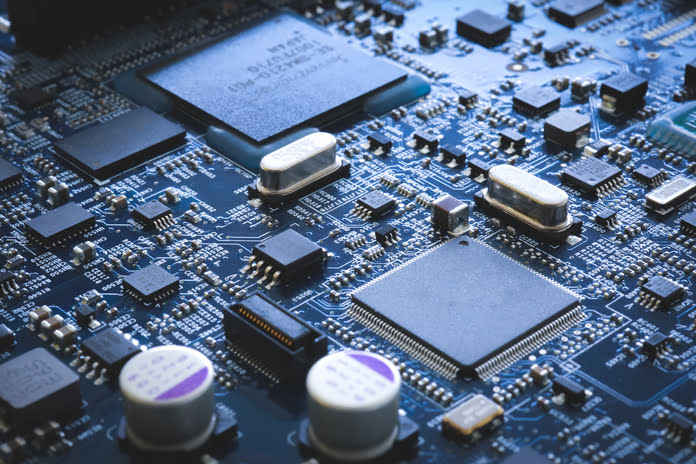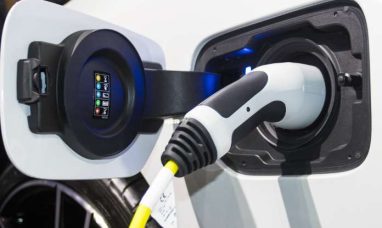The chip industry has experienced many changes in recent years. With Advanced Micro Devices’ impressive resurgence, Intel is losing market share. Additionally, Apple shocked everyone by debuting its M series chips, which crushed the competition. As a result, many engineers became inspired to leave the big hardware companies and establish their own chip startups. Also, tech software giants with deep pockets decided to make their own custom computer chips: Meta Platforms, Alphabet, and Microsoft.
The computer industry has seen a lot of shakeups, and the demand has never been higher as the Intel monopoly appears to be eroding.
One promising chip startup, NUVIA, was purchased for $1.4 billion in 2021 by Qualcomm (NASDAQ:QCOM). Experts believe NUVIA is the most likely to succeed among all the competitors. This article breaks down the likelihood of QUALCOMM Incorporated’s (NASDAQ:QCOM) segment NUVIA’s ability to fulfill what they have been promising.
What Is NUVIA
Founded by high-level ex-Apple employees, NUVIA is a company that strives to develop chips that are the best performing in terms of performance per watt using the ARM-based Instruction Set Architecture (ISA). They seek to create the fastest chips in the industry, covering: the server market, personal computers, and the mobile space.
Recently, Qualcomm’s (NASDAQ:QCOM) CEO claimed NUVIA chips would beat Apple’s M2 performance. That bold b statement from the CEO shows Qualcomm’s (NASDAQ:QCOM) confidence in its newly acquired unit. However, the possibility of that occurring is something we will discuss further in this article.
The Competition
Many startups are popping up with colossal talent, leaving the big companies. However, none represents a real threat, as they are too early in development. There is a perception that these startups are not much of a threat and have little purpose beyond trying to be acquired by larger companies.
Producing computer chips is challenging, so very few companies have ever been able to sell successfully on a server market and commercial, personal computing scale AMD, IBM (IBM), Intel, and now Apple. This is why NUVIA’s story is fascinating since they were able to achieve their goal of being acquired and, surprisingly, are not following the path of vaporware like most chip startups purchased in the past.
Meanwhile, the server and custom chip market is booming in activities on the non-startup side as big tech giants are attempting to produce their own chips. Following employee migrations from company to company on LinkedIn shows industry veterans moving to traditional software companies like Alphabet, Meta, and Microsoft. These veterans are attracted by massive pay and enjoy the perks only software developers get to enjoy. Additionally, it is unlikely that tech giants with almost no hardware experience will be able to create successful hardware divisions. Their real purpose is likely to threaten AMD and Intel to reduce the cost of their hardware.
Why NUVIA May Fail
This article aims to help investors determine the probability of NUVIA succeeding, thus adding a new dimension to Qualcomm’s (NASDAQ:QCOM) business strategy. Currently, no one outside the company knows for sure whether NUVIA will succeed in providing a working product that is competitive in power and performance.
Below are potential obstacles NUVIA/Qualcomm(NASDAQ:QCOM) will face and past roadblocks that have led to failure, which explains how challenging the hardware chip business is.
- With its own data center based on ARM products, Qualcomm(NASDAQ:QCOM) has been here before; they sadly failed in 2018, laying off their entire division. This proves that even hardware companies find it hard to expand from the mobile market.
- Optimized software is a necessity to take advantage of the hardware. Qualcomm (NASDAQ:QCOM) CEO’s claim of NUVIA potentially beating M2 chips is somewhat of an absurd statement. Even if the hardware is there, there needs to be massive software support to take advantage of the hardware architecture fully. This is why X86 has such a huge edge, despite its archaic Instruction Set Architecture: software optimization. In other words, Microsoft would have to be fully on board to see the hypothetical edge of NUVIA chips, producing a highly optimized Windows operating system. Optimization requires employee commitment, which always costs money. So Microsoft would have to invest and believe in NUVIA chips.
- NUVIA is already experiencing delays; their chip has already been pushed back to 2023. Also, it’s possible by the time NUVIA is faster than the M2 chip; it’s likely Apple releasing its M5 chips.
- Apple is suing NUVIA, playing out in the courts, and now it’s Qualcomm’s (NASDAQ:QCOM) problem.
- NUVIA has claimed they will be the best in the market; however, aside from a few PowerPoint slides on performance and power, there is no clear understanding of how they will pull it off. They haven’t shown any ideas/innovations that give many people in the industry that they will be able to succeed. They have been just living off the reputation of their founders.
Why NUVIA Might Succeed
As we have gotten the negatives out of the way, let’s review some reasons why this time it might be different, and NUVIA will be able to pull it off and not only have a working product but the best in the business.
- NUVIA was able to convince a tech giant to purchase it. As I discussed in this article, there isn’t much public information about NUVIA, but they seem to have impressed Qualcomm (NASDAQ:QCOM) enough to buy them.
- NUVIA is paying top dollar for talent. According to anonymous posts on Blind (a website dedicated to employees to discuss salary offers), NUVIA is giving massive salaries to new employees, matching or even paying better than Nvidia, Apple, Google, and others. This is a big deal, talent is everything when you want to make the best chips, and Qualcomm (NASDAQ:QCOM) believes in this division enough to give a blank check for hiring.
- According to Gerard William, NUVIA chips are being built from the ground up and wholly reimagined pipeline architecture, much like how M1 changed the industry. It’s not hard to believe that the same pedigree from Apple can do it again, as the industry has been stagnant for decades since it essentially has been a monopoly. So yes, this does seem like a plausible claim. They are doing it from the ground up, from scratch with new code, not constrained by legacy restrictions that hamper the current chip industry.
- ARM and Nvidia Merger fell through. As mentioned, NUVIA is using the ARM ISA, a potential merger could have created unforeseen issues, but luckily that fell through, a relief to the entire chip-making industry.
Featured Image: Megapixl @Arwiyada















